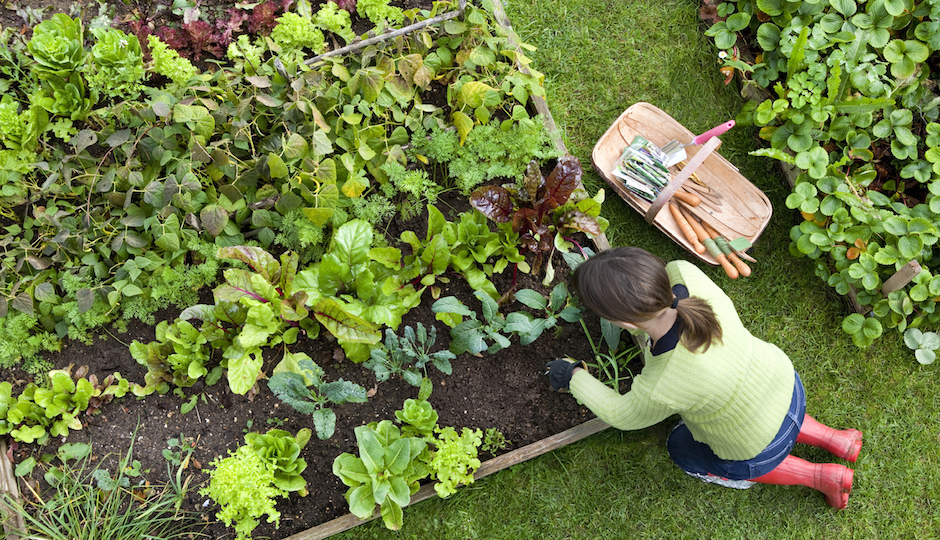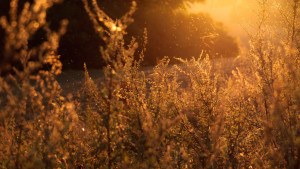Have a Green Thumb Without Red Eyes: 9 Gardening Tips for Allergy Sufferers

Staying indoors to avoid your own backyard? Most gardeners tend to bury their love of gardening due to fear of plant pollens and other allergy and asthma triggers.
But you don’t have to throw in the trowel! Stop and smell the flowers (minus the sniffles) with these tips from the experts at Allergy & Asthma SpecialistsSM.
It starts with you
Take care of yourself first by using antihistamines or nasal sprays before you begin gardening. Limit your time outside to 15-minute intervals, twice a day, and then gradually increase your time as you get used to your surroundings. Invest in a pollen mask and gloves, and avoid touching your face or eyes while working.
Be sure to wash your hands, shampoo your hair, rinse your eyes with cool water and change your clothes after coming indoors to remove any clinging pollen.
Avoid wind-borne pollinating plants
Trees, grasses, weeds and other wind-borne pollinating plants are more likely to cause an allergic reaction than flowering plants due to their pollen production. These plants release light, nearly invisible pollen in large quantities for reproduction that are hard to see and easily inhaled.
Not sure how to tell the difference between wind-borne and flowering plants? Steer clear of plants with smaller blooms that have little to no color.
Embrace the rainbow
You might think bright, colorful plants are a death sentence for allergy sufferers—but it’s quite the opposite. Brightly colored plants are usually insect-pollinated, and produce heavy, sticky pollens that are carried by insects and animals from plant to plant, lessening the likelihood of an allergic reaction.
Female plants > male plants
Girl power! Female trees and shrubs are messy, but do not produce pollen and can even help remove pollen from the air by trapping it. While tidier than their female counterpart, male trees and shrubs actually produce tons of pollen. It can be difficult to tell which plants are male, female or both, so check with your seed or plant provider before purchasing.
Disease-resistant means allergy-resistant, too
Many plants like fruits and vegetables are disease-resistant, or less likely to produce mildew and rust (two major sources of allergies).
Avoid common diseases and allergy triggers by investing in berry bushes, lavender, coneflowers and more.
Native plants are low maintenance
Research which plants grow native in your area and your garden will basically take care of itself! Plants that have already adapted to your climate are easier to grow, require less watering or fertilizer and tend to attract more butterflies, insects, and birds to reduce wind-borne pollination.
Be mindful of weather, time and location
Pollination increases during hot and humid weather. If possible, garden on cool, cloudy or less windy days when the pollen count is low. Although thunderstorms can elevate pollen levels, rain showers actually temporarily clear pollens from the air.
Don’t garden in the early morning and late afternoon when pollen counts are highest. If you love high-pollen-producing plants, like mulberry, keep them away from your front and back doors, bedroom windows and other high-traffic areas of your home to limit your exposure.
When all else fails, buy a potted plant
If your symptoms are too severe for all of the above, you can always pick up a container garden. Potted vegetables and flowers are super easy to maintain and require less time outdoors. Most importantly, they’re pretty cute!
Stop and see an allergist
Before you get down in the dirt, make sure you have a handle on your allergies and treatment. Make an appointment with Allergy & Asthma SpecialistsSM to identify your specific triggers via skin testing. An allergist can determine a personalized treatment plan that will effectively combat your symptoms, without all the pesky side effects, so you’re free to focus on your garden oasis.
Allergy & Asthma SpecialistsSMis a group practice with eight locations in Philadelphia and the surrounding suburbs that provides state-of-the-art medical care in a personal and caring environment, emphasizing the control of asthma and allergic disease, while avoiding side effects from medications.
For more information on how Allergy & Asthma SpecialistsSM can help treat your allergy symptoms this spring, visit them online. To schedule an appointment call 1-800-86-COUGH, or book online by clicking here.
This is a paid partnership between Allergy & Asthma Specialists ℠ and Philadelphia Magazine


